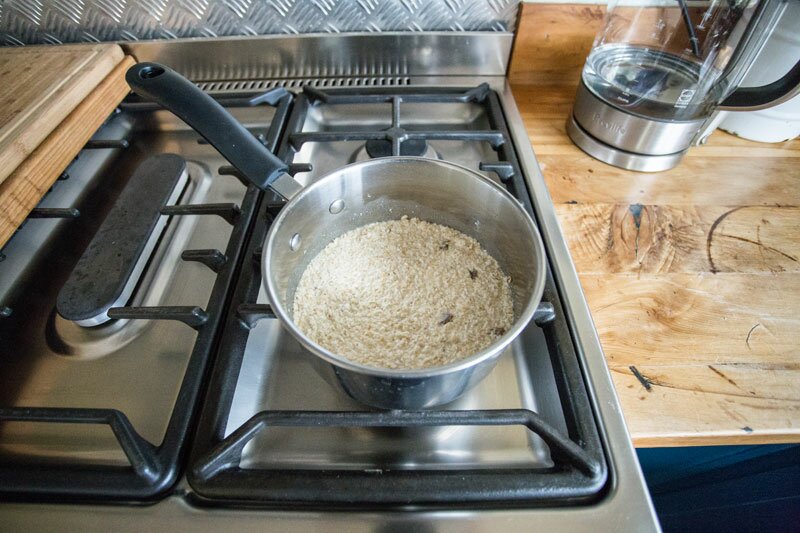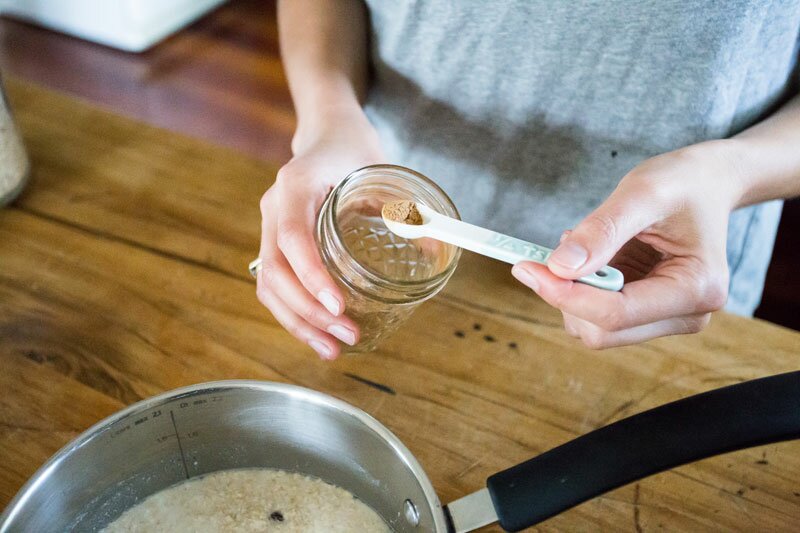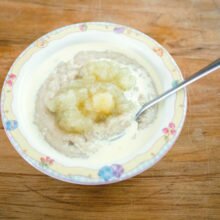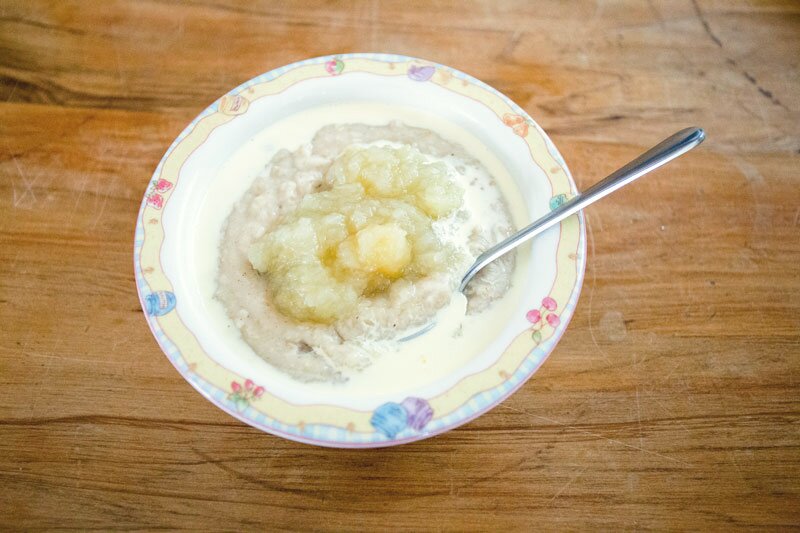We have the same breakfast without fail every single morning. There have been a couple of times when we’ve tried to jazz things up and eat something different like toast and eggs for breakfast, but pretty much the next day we would always go back to eating our firm family favourite: lacto-fermented porridge! And then we’d just look at each other and say, like Goldilocks, “Mmm, this is just right. Why did we think we needed to try something else again?”
There are so many reasons why it’s so good; I’ll do my best to recall enough to convince you that this breakfast is worth trying (if you don’t eat it already 😉 ). But first, what is lacto-fermented porridge? Well, instead of cooking up our oats first thing in the morning as many people do, we let our porridge oats soak in a kefir (yoghurt will do) water mix and lacto-ferment overnight. In the morning we cook it as usual, but the resulting porridge is now:
– probiotic-rich and fermented, making it
– easily digestible and nourishing,
– tangier and much tastier than plain porridge,
– quicker to cook, and
– smoother and not sticky or gluggy like ordinary porridge, which means
– the dishes are SO much easier to clean! …and it doesn’t congeal into a solid lump like ordinary porridge does (inside your tummy or on the bench).
The kids love it, even though we eat it every day (even through summer!) and as a mum something I love about eating L-F porridge for breakfast is that there’s no waste and I know exactly how much food the kids have eaten at the start of their day.
Because it’s a hot dish (well ok, warm because the little ones can’t cope with hot) it means we always sit down together to eat in the morning. Even if dad’s in a terrible rush to leave for work, he always sits down if only for a few minutes, which means we always start our day eating together, acknowledging one another and the new day ahead of us. It’s a ritual we consider to be incredibly important to our whole family’s wellbeing and connectedness.
We cook our oats up with cinnamon and kelp salt, and now that we’re milk-free we use almond milk to serve and also a little bit of almond milk with the water when cooking. These days we mix a mashed banana into the cooked porridge before serving to give it a bit of sweetness, but as you can see we used to soak some sultanas with the oats (they are so much better presoaked!) and if we have any, we might serve it up with stewed apples and/or pears. Yum.


So if your curiosity is now piqued and you’re ready to give it a go, here is our recipe which I’m sure can be adjusted easily and with little risk of failure, to suit your own needs and tastes:

Lacto-fermented Porridge
Ingredients
- 1½ cups organic rolled oats
- 2 Tbsp milk kefir (or plain cultured yoghurt)
- 1½ cups filtered water
- handful of sultanas or raisins
in the morning, add:
- 1½ cup milk or nut mylk
- 1½ cups filtered water
- ¼ tsp salt (we use kelp salt)
- ¼ - ½ tsp cinnamon
Instructions
-
In the evening, put the rolled oats, milk kefir, raisins, and 1½cups of filtered water into a saucepan. Stir to combine and then cover the pot. Leave out at room temperature overnight.
-
In the morning, the oats and raisins will have soaked up most of the liquid from the night before. Add 1½ cups milk or nut mylk, another 1½ cups filtered water, salt, and cinnamon, and stir to combine.
-
Turn the stove on to medium heat, stirring frequently to prevent the porridge from burning on the bottom of the pot. When the porridge starts to simmer, turn the heat down to low and let the porridge continue to cook and thicken. Stir frequently.
-
Serve hot with cream, milk, or nut mylk. You can add chopped bananas or stewed fruit to give it a bit of sweetness, but the raisins may be enough for your liking. Enjoy!
For your interest:
Nourished Kitchen – “Fermented Food: Benefits of Lactic Acid Fermentation”

Looks yum! Some coconut milk drizzled on would be yum too … or some coconut yoghurt 🙂
ooh yeah, bananas and coconut yoghurt …mmm 😛
just wondered about heating the kefir does this effect the probiotics?
Hi there. Yes, to my knowledge heating does kill the probiotics. But there is some suggestion that even cooked probiotics have an anti-inflammatory effect on the gut, and at the very least, lacto-fermenting the oats means that the oats are much more digestible and nutritious than cooking them from raw. So I’m not too worried about the probiotic content of my porridge – personally I think there’s a place for both cooked and raw fermented foods 🙂
FYI, “‘Dead’ yoghurt just as effective”
I usually just eat the oats soaked in almond milk kefir raw -and they taste delicious-but is it better to cook them?
It sounds to me like you’re eating a lacto-fermented bircher muesli! I’m sure it’s very nutritious just the way you’re doing it